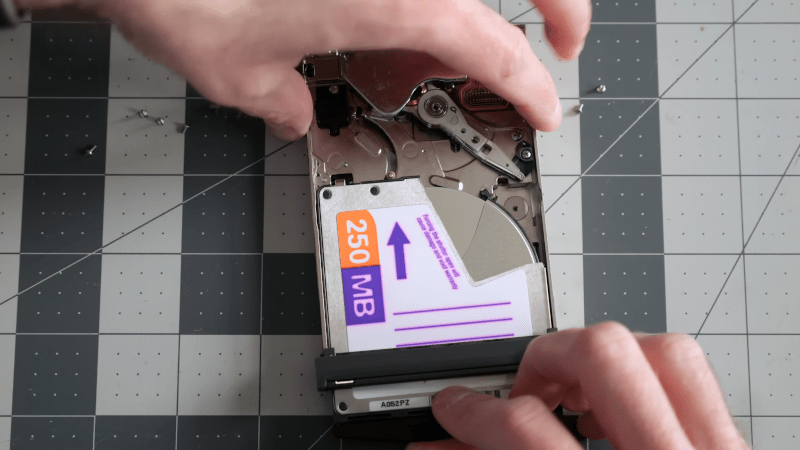
These days, cheap removable storage is no problem. USB sticks are virtually free at moderate capacity and not unreasonable, even at relatively large sizes. They are rugged, work across platforms, and don’t require any exotic interfaces. But this hasn’t always been the case. In the 1990s, people wanted to store too much data for floppies, but weren’t willing to shell out for removable hard drives or tapes. Many companies identified this opportunity with, perhaps, the most successful being Iomega with the Zip drive. But there were others, including the Avatar Shark that [This Does Not Compute] remembers in a video you can see below.
Haven’t heard of the Shark? We had not either, but reviewers seemed to like it. The drive would fit in your pocket if you had a fairly large pocket. The 250 MB cartridge was smaller (but thicker) than a 3.5-inch floppy. It performed ok and connected to the parallel port which was common in those days.
The disks cost about $40, and the drive listed for $300 and was eventually available for around $200. You’d think these would sell, but according to the video, they didn’t sell well at all. Why? Part of it was a lack of brand recognition for the relatively new company, Avatar. In their early days, they targeted PC makers, not end-users. Another reason is that the rotating drives were not very robust for a portable device. In particular, transporting the portable drive with a disk in it was likely to result in data loss.
Another reason for consumer indifference was price. The price per megabyte was actually competitive. But lower-capacity disks were still large by consumer standards and cost less to buy. The lower-capacity drives were also cheaper. For example, the popular Zip drive was about $150, with disks about $15 or so. Sure, they held less than half, but 100 MB was a lot of storage in the 1990s.
Times sure have changed. While Zip drives are a distant memory for most, some classic Mac users prize the SCSI versions. It wasn’t that long ago that people were storing data on drums with 200 strips of film inside.
0 Commentaires